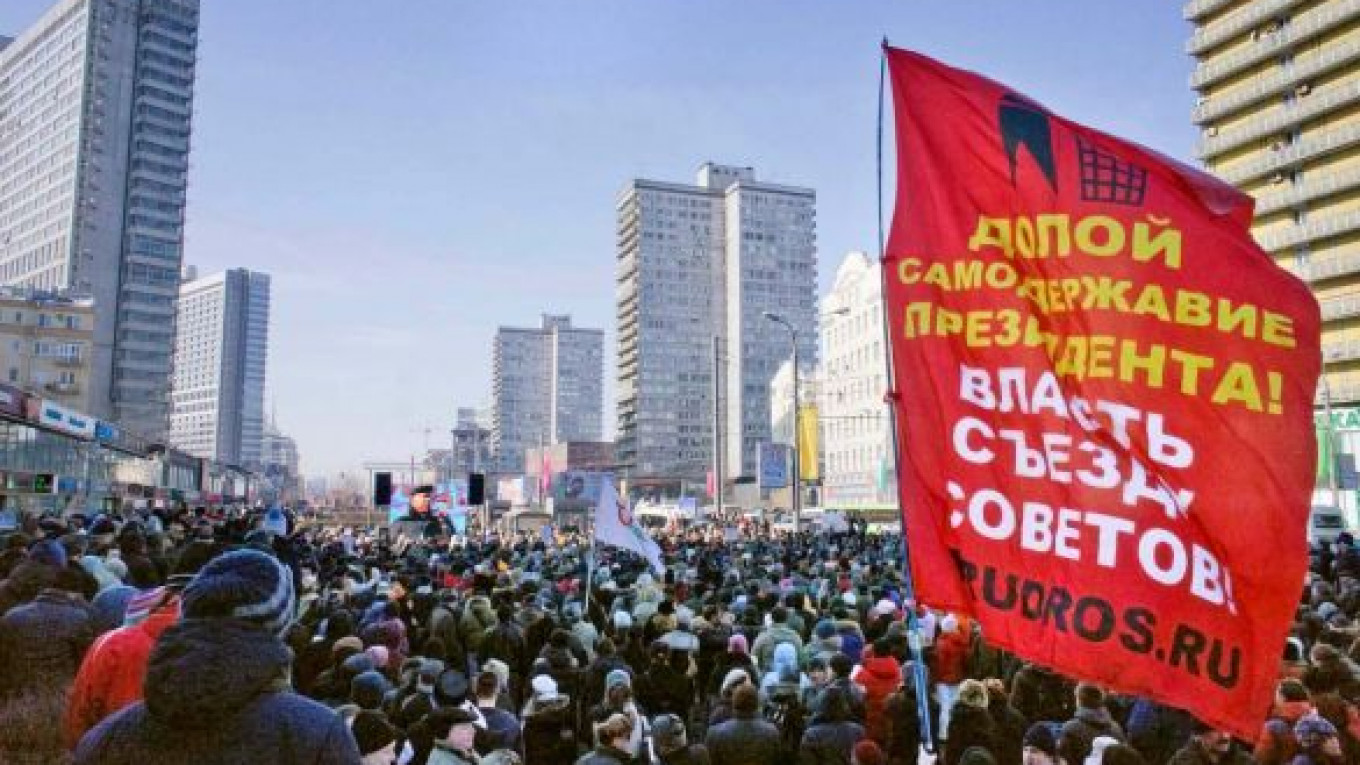Opposition activists are laying plans for a July protest march in central Moscow that will press up against a separate anti-Kremlin event the same week.
The “Hot July” People’s Freedom March, originally scheduled for July 14, has been set for July 28, after authorities denied permission for the initial event.
The march will fall two days after a July 26 protest organized by the May 6 Committee in support of protesters detained after clashes with police at a May 6 rally. An organizer of the July 26 protest, Solidarity member Sergei Davidis, told The Moscow Times by phone Thursday that the two events are not connected.
The Hot July rally will put forward demands including an end to rising utilities tariffs, the retirement of President Vladimir Putin and the freeing of political prisoners, according to the event’s Facebook page. The march’s slogans bear a striking similarity to those of earlier rallies, though this event is not being organized by the For Fair Elections committee, which was responsible for many of the opposition protests held in Moscow since December.
A separate group of activists from Solidarity and Left Front and the lesser-known People’s Control put together the Hot July march, Kommersant reported Wednesday. The activists promise that the event will feature a completely different set of speakers from past rallies, including “VIP opposition activists from the ’90s,” according to its Facebook page. They did not specify whom this would include.
By Thursday evening, almost 3,000 people had signed up on Facebook to attend the July 28 event. Organizers told Kommersant they would ask City Hall for a maximum attendance of 10,000.
A Message from The Moscow Times:
Dear readers,
We are facing unprecedented challenges. Russia's Prosecutor General's Office has designated The Moscow Times as an "undesirable" organization, criminalizing our work and putting our staff at risk of prosecution. This follows our earlier unjust labeling as a "foreign agent."
These actions are direct attempts to silence independent journalism in Russia. The authorities claim our work "discredits the decisions of the Russian leadership." We see things differently: we strive to provide accurate, unbiased reporting on Russia.
We, the journalists of The Moscow Times, refuse to be silenced. But to continue our work, we need your help.
Your support, no matter how small, makes a world of difference. If you can, please support us monthly starting from just $2. It's quick to set up, and every contribution makes a significant impact.
By supporting The Moscow Times, you're defending open, independent journalism in the face of repression. Thank you for standing with us.
Remind me later.






